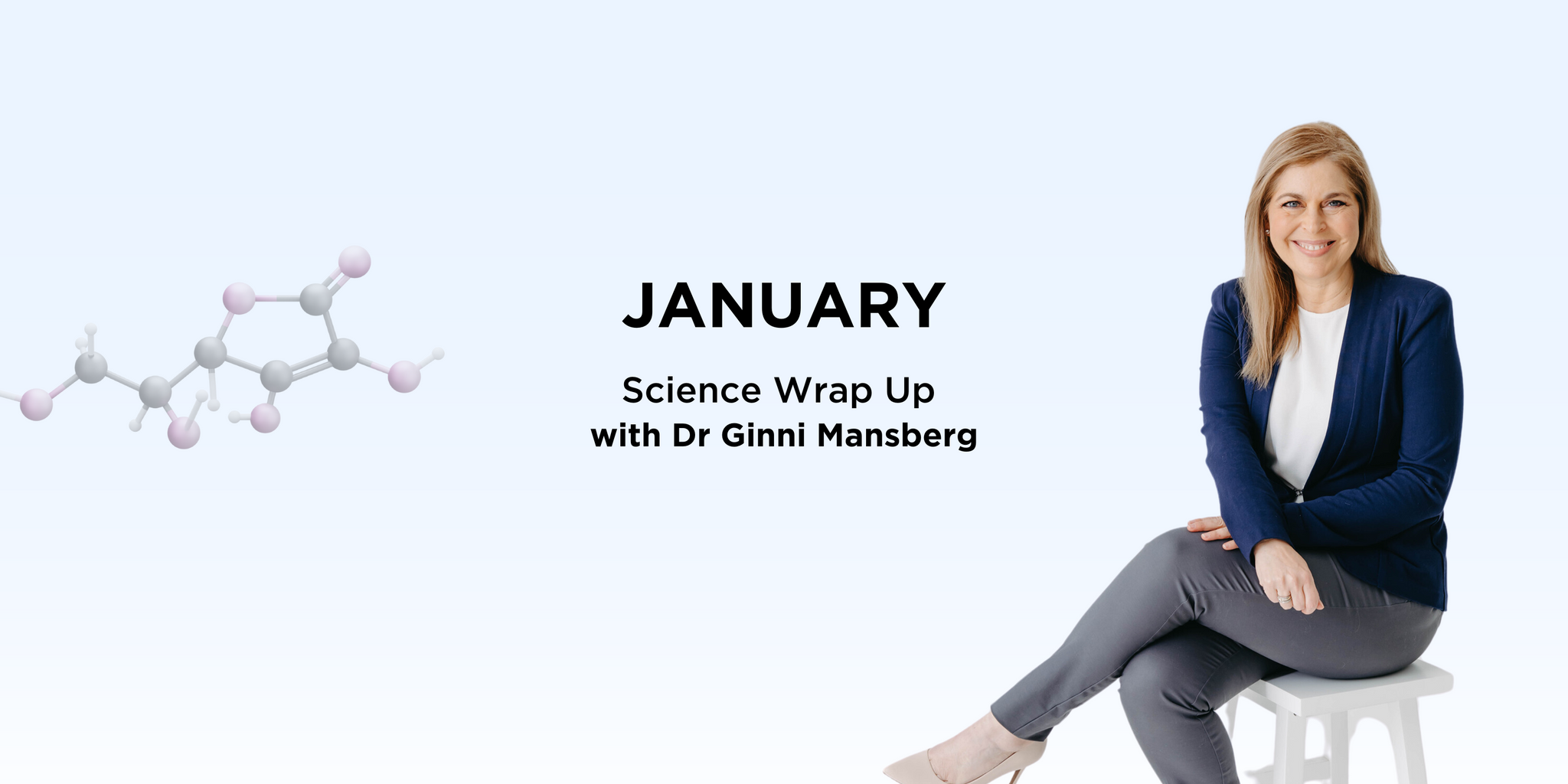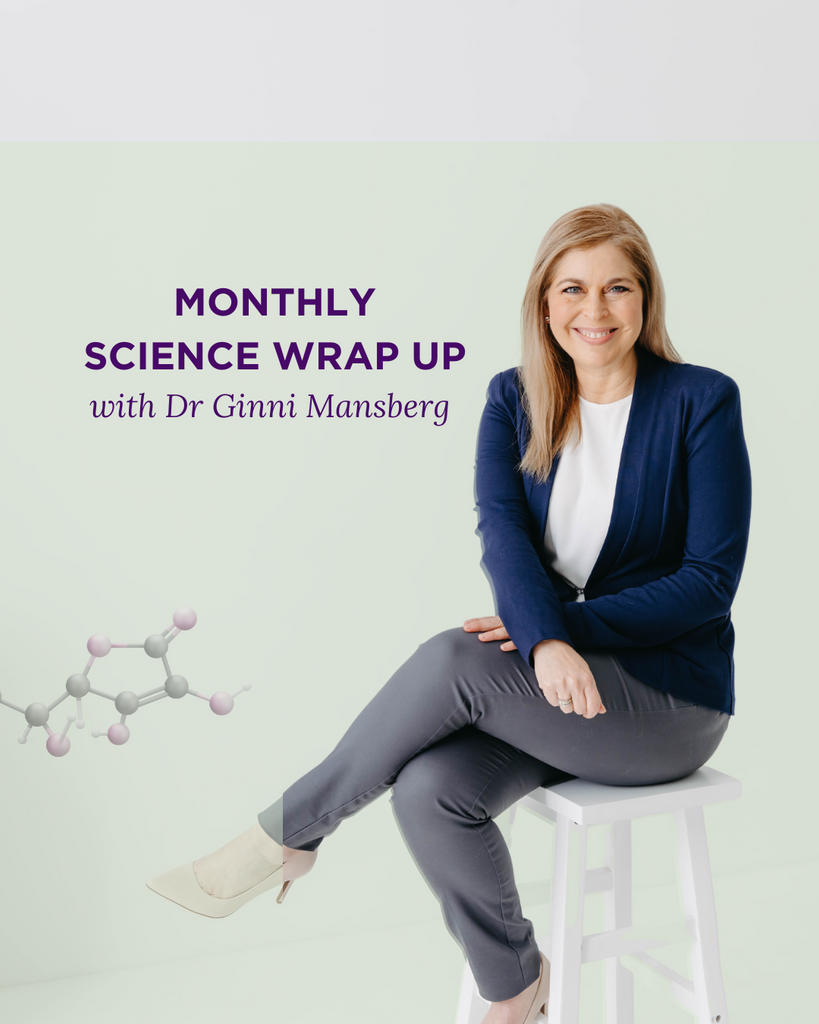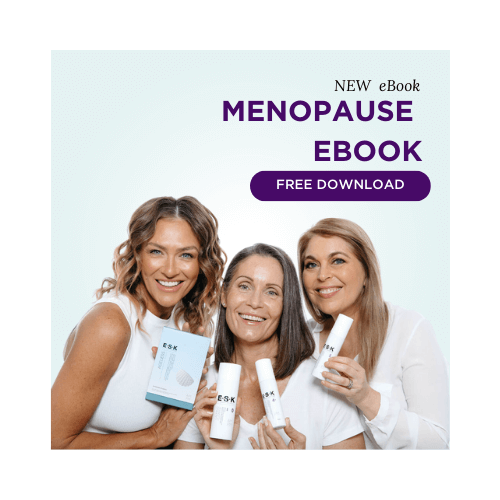
Science Hub
January 2025 Science Wrap Up
31 January 2025
Dr Ginni Mansberg
How is your 2025 so far? Ours has been just amazing! My son and daughter in law, David and Brooke visited from New York. If any of you guys have kids living abroad, you will know how incredible that is. Sydney has had a nasty habit for the past few years of saving its worst for them when they come home. As a native New Yorker, Brooke has been dished up lashings of La Nina making Australia look like a horrific place to raise children. This year, Mother Nature came good. We had perfect sunshine and mild weather (less than 30 degrees Celsius or 86 degrees Fahrenheit) every day.
As soon as they left we started packing for LA, Palm Springs and Las Vegas, where we went for a course on business and for meetings that we’ll be able to talk more about in the next few months. We got home on the 27th January and on the 3rd February we’re off to London for the Menopause in Aesthetics conference at the Connaught Rooms! I love this conference so much and have met so many incredible colleagues through this community. I’ll be hosting panels and speaking about all things menopause and skin! We’ll also be doing another event with one of the plastic surgeons who stocks ESK.
Meanwhile, every spare moment was filled digesting the latest studies on skin…. Here are the ones I found most fascinating!
The newer cooler anti pigmentation ingredients- yep it’s 4NB and her friends for 2025!
Resorcinol-based products are emerging stars in the world of skincare, especially for tackling melasma and pigmentation, according to a review article published in the journal ChemMedChem. What makes them special? It’s all about their ability to inhibit tyrosinase, the enzyme that drives melanin or pigment production. Unlike other tyrosinase inhibitors, resorcinols are less likely to get hijacked by the enzyme and turned into reactive, potentially harmful byproducts. This makes them safer and more effective in real-world use.
They’re already featured in skincare products, especially 4 n Butylresorcinol, our favourite tyrosinase inhibitor. This review pointed to the impressive results in reducing melasma severity, sometimes even outshining hydroquinone, but with fewer side effects. That’s because these resorcinol based products tend to be well-tolerated with none of the concerning risks linked to older agents like arbutin, kojic acid and hydroquinone (which has been flagged for potential irritant and carcinogenic effects). That makes them a win for everyone, but especially for people with sensitive skin!
Lifestyle hacks for hydrated skin
So, your skin’s feeling drier than a cracker in the desert, and you're wondering what actually helps? Well, a 2024 Japanese study looked at older adults (average age 83!) to figure out which lifestyle habits actually keep skin hydrated, and which ones don't do much at all.
1. Daily Moisturizing. Using a moisturizer every day was statistically proven to boost skin hydration. The type of moisturiser didn’t seem to matter much, and creams, lotions and gels all did the trick!
2. Exercise. People who exercised regularly had better skin hydration than those who didn’t. The study didn’t get into what kind of exercise is best, but honestly, anything that gets you moving seems to help!
What Probably Doesn’t Work (or Could Make Things Worse!)
1. Smoking. No surprises! Smoking showed a trend toward drier skin.
2. Diet. This was a surprise! Sure, a healthy, balanced diet is always great, but this study didn’t find a strong link between diet and skin hydration. That doesn’t mean eating well doesn’t help skin—just that this study didn’t confirm it as a major hydration booster.
3. Washing Habits. Another surprise. Some studies suggest hot showers and over-washing strip moisture, but this study didn’t find a strong connection.
Supplements for rosacea? Yeah maybe!
So, you’re dealing with rosacea, and you’re wondering if supplements can help? Well, according to a meta-analysis of studies published in the Journal Archives of Dermatological Research, some vitamins and minerals might actually be worth a shot. Others? Not so much.
The Supplements That Show Some Promise
Vitamin A
The gold standard for rosacea flares! Oral isotretinoin (low-dose Accutane) had a 90% reduction in lesions and led to clear skin in many patients. Topical retinoids help too but many forms might be too harsh for some. (A notable exception – Retinal, which is super well tolerated!!)
Vitamin B3
The authors confirmed that topical niacinamide improved rosacea in 76% of patients! Oral supplements? Meh, evidence isn’t there!
Omega-3 Fatty Acids
If dry, irritated eyes are your main rosacea issue, omega-3s are a no-brainer with studies showing that 65% of patients see improvements. Yassss! Love that! But, the authors said, while they are a winner for your eyes, there’s no proof that it works for skin symptoms.
Zinc
A 5% zinc sulfate solution helped with rosacea bumps & redness in studies. But oral zinc? Mixed results. Some studies showed improvement, others nada.
Vitamin K
One study found 1% topical vitamin K cream helped rosacea-related redness and small veins. So, it needs more research, but it looks promising for those dealing with persistent flushing!
The Meh Supplements
Vitamin D
Some studies say rosacea patients have low vitamin D, while others suggest high vitamin D might trigger it! But there’s no solid evidence that supplements help, so don’t rush to stock up on D3 just yet.
Vitamin B12
Some research suggests B12 deficiency might worsen rosacea, but high doses of B12 have also triggered severe flares. More studies are needed before we can say it’s helpful!
If you’re in Australia- enjoy the stunning summer we’re being dished up. For our family in the Northern hemisphere- sorry, and stay warm!

